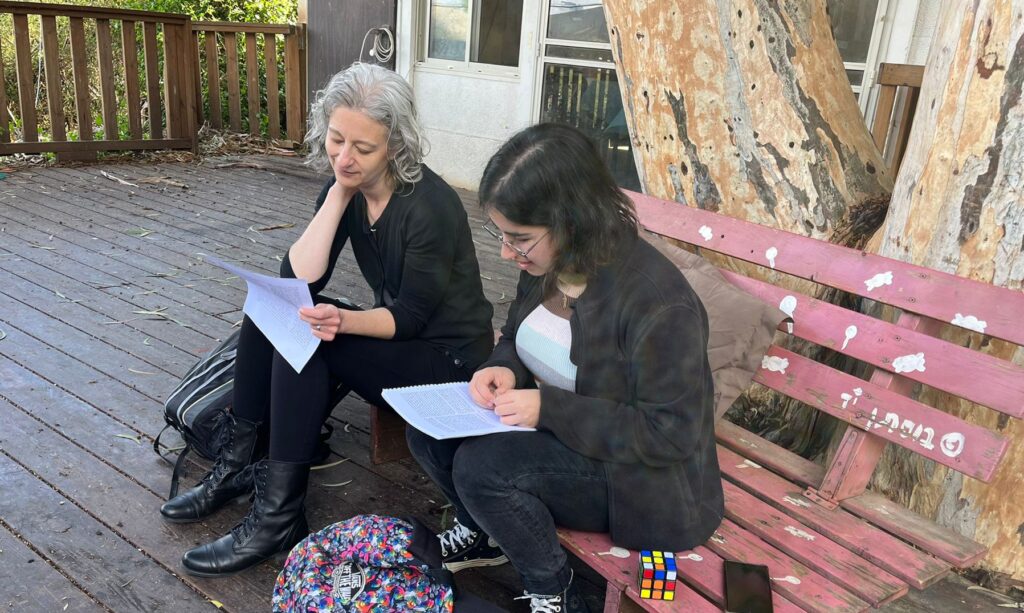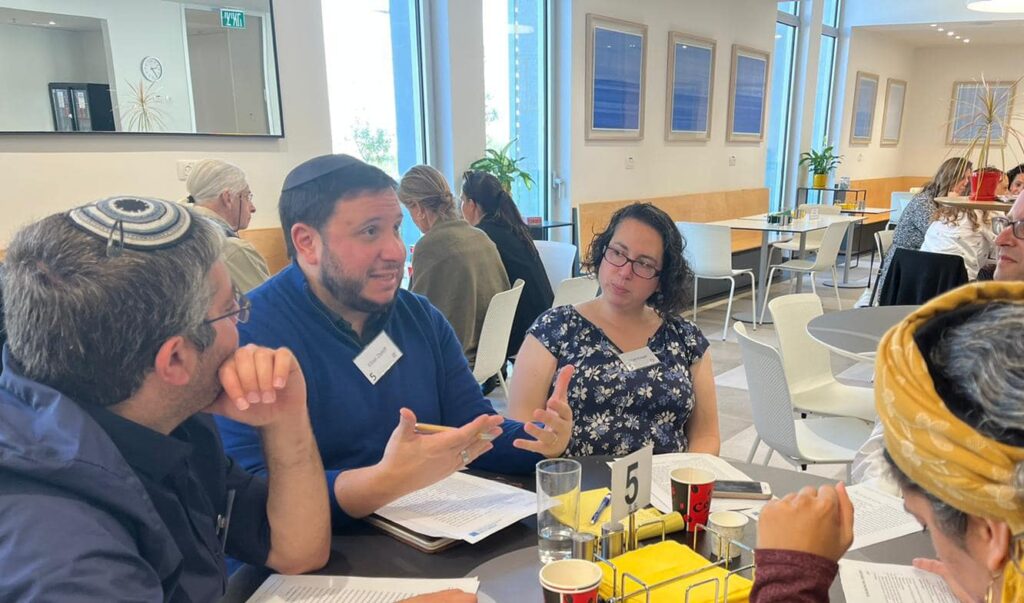Fellows in Cohort I of the Educational Leadership Program traveled to Israel for a week-long study tour. Through visits to a wide range of Israeli schools, fellows enriched their educational visions, honed their skills of observation and analysis, and deepened their understanding of Israel’s diverse society. Each school visit was accompanied by a lecture on the relevant sector of Israeli society, situating the school in its societal context.
Please scroll down for our fellows’ perspectives on the Israel seminar!
School visits included:
- BINA, a secular yeshiva in Tel Aviv offering a range of programs for high school graduates
- Rogozin, a high school in Tel Aviv serving a student body comprised entirely of immigrants
- Makor Chaim, a yeshiva high school serving the National Religious sector
- Netzah Yisrael boys and girls schools, elementary schools in Beit Shemesh serving the Haredi sector
- Rawad Al Quds, a school for gifted students in East Jerusalem serving the Arab sector
The seminar offered fellows a unique opportunity to connect with Israeli fellows in the Mandel School for Educational Leadership. The North American and Israeli fellows spent a full day together, learning about each other’s professional challenges and educational visions. The day included visits to Jerusalem schools in small groups of Israeli and North American fellows.
Finally, the program provided an opportunity for fellows to delve into Israel education for North American Jews. Fellows engaged with a panel of experienced Israel educators who shared their approaches to Israel education, focusing on the role of the Palestinian-Israeli conflict and the place of Palestinian narratives in the broader educational endeavor.
Jethro Berkman
Reflections from Fellows
Rebecca Milder

It had been 16 years since I’d visited Israel. While I’d made tremendous strides in advancing Jewish children’s learning, I’d made relatively little progress in supporting children in their relationship with modern Israel. It baffled me, this profoundly difficult task of teaching the particulars of modern Israel while holding dignity for all humanity in the process. The Mandel Educational Leadership Program changed that.
We encountered Israel through its schools. The schools spanned Israeli society, and not only offered us a lens into particular sectors of society, but also addressed the growing edges of that sector. We sat in classrooms, spoke with administrators and teachers, and chatted with students. Experts – academics, politicians, journalists, musicians – offered lectures. Ours was a singular, direct encounter that ignited questions about educational vision and practice, explicit and implicit messages, and deeply divergent views of Israel’s future.
A second critical piece of this trip were the fellows: expert educators from widely diverse arenas of Jewish education across North America. We chatted endlessly. We met with our Israeli counterparts in a day of shared learning with the Mandel School for Educational Leadership. Our collective stance of nonjudgment made it safe to probe our experiences – and to dig into biases.
As a result of this trip, I now have a starting point to untangle the complexities of engaging with children around modern Israel. I have a network that spans North America and the field of Jewish education, with faculty devoted to our success. I have new Israeli colleagues and their WhatsApp numbers, and the experiences of meeting so many Israelis – Jewish and Arab – inside me. I am grateful to my colleagues, to the faculty, and to the Mandel Foundation for this new, unfolding, insight.
Ethan Zadoff

As my plane sat on the tarmac, ready to return home after a whirlwind eight day trip, I confronted two startling but stark realizations; first, that prior to this trip I had only a superficial understanding of the diversity of today’s Israeli society; second, this trip, more than any other trip or Israel educational experience I have taken part in, opened my eyes to the key questions and challenges that contemporary Israeli society faces in the 21st century.
The study tour took us to seven different schools and educational institutions serving different communities across the religious, ideological, and political spectrum. By spending time in classrooms with teachers and students, talking to parents, board members and other stakeholders, and learning from scholars and experts in the field, we gained insight into the educational challenges that each community must negotiate religiously, politically, socially and culturally.
But this experience was far more than a deep dive into the Israeli educational system. The schools and educational institutions we visited and the experts we engaged served as voices of the diverse segments of Israeli society, broadcasting and representing the larger challenges of the different segments of Israeli society today. Through our visits, we dove headfirst not only into questions of education, but the definition and self-definition of the different segments of Israeli society today. For me, this was the first time on any trip to Israel or through any Israel educational experience that I was able to see, hear, and engage with contemporary Israeli society.
My own perception of the Haredi community, for instance, was completely shattered when visiting the Netzach Yisrael schools and Seminar Shoshanim. At Netzach Yisrael I saw teachers blend traditional pedagogies of teaching Talmud with 21st century technological innovation and assessment practices, an amalgam that the community is striving to achieve in wider terms outside of the specific context of school. At Seminar Shoshanim we talked to girls studying for the bagrut, while learning Sefer Yechezkel, and creating beautiful works of art for a school wide exhibition. The students at Seminar Shoshanim were preparing themselves for their next stages of life while pursuing their deep-seated and personal passions.
Within the educational institutions we visited, and through the educational visions that were shared with us, we were able to truly deepen our understanding of Israeli society in all its complexities. But this trip also left me with an important question and a critique of Israel education in the diaspora—how can we help our own students in the diaspora gain perspective and insight into the contours and complexities of contemporary Israel society and how do we make this a regular part of Israel education? This is my challenge moving forward.
